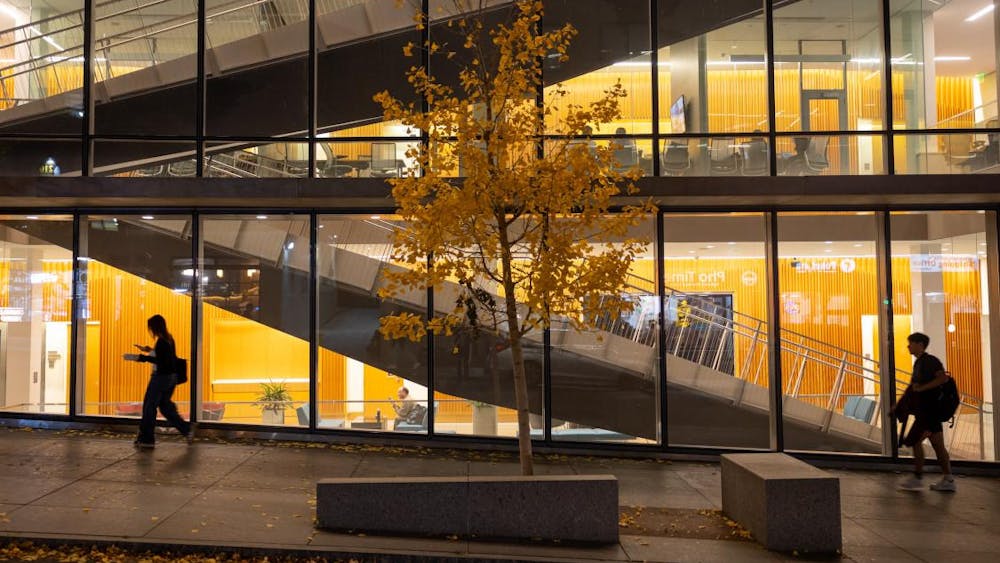Every graduating senior knows some version of my story at Cornell. The class of 2023 is unique, and unified, in our trials and triumphs through COVID-19. We alone have seen the before and after. We are the class that watched Cornell fall apart, and we are the class that rebuilt it — preserving and restoring the traditions, cultures and communities that make this place worthwhile. For once, I write not to break news in The Sun, but to express generational solidarity. Our class, despite all odds and administrative difficulties, saved Cornell.
In spring 2020, I started my first semester at Cornell. I couldn’t wait to write esoteric English essays, poetry for Kitsch Magazine and breaking news for The Sun. I was ready to spend long, sunny days on the Slope, get boba in ctown and explore the quirky city of Ithaca. Most of all, I looked forward to building new communities — friends, fellow thinkers and artistic collaborators. I’d done my research on Cornell, and I knew that I would find a huge range of perspectives, talents and life experiences in my fellow students.
For eight short weeks, I made a start. Then, on March 13th, 2020, Cornell announced that it would suspend classes for three weeks and send students home to protect against a rising global COVID-19 pandemic.
I returned home for a presumed three-week break. When Cornell moved all classes online and the pandemic raged across the country, weeks turned into months. My future became unclear. As I tried to finish the semester, I suffered mental health difficulties, including an intense anxiety that still persists. I retained some of my earliest acquaintances, who have now become four-year friends, through Zoom socials. Most of my fledgling Cornell communities fell away, except for Kitsch and The Sun, which continued to publish with unflagging dedication through the chaos.
I made it through quarantine and remote learning, alongside most of my class. But the impacts of the pandemic extended, threatening lives and decimating Cornell’s communities. When my peers and I emerged from our confinement in 2021, it became clear that we couldn’t pick up right where we left off. People were still scared. People were still depressed. People had fallen out of the habits of participation and friendship — the pandemic had forced a cultural shift from which we might never fully recover.
The impact felt most obvious in the context of student organizations. Many traditional orgs, similarly to Ithaca businesses, struggled to stay afloat through COVID-19. The biggest challenge was drawing new members — because how can you possibly motivate busy students in an unpaid organization without any fun or community development? In spring 2021, I stepped into leadership positions for multiple orgs and experienced some barebones operations. The Sun had severely diminished as a community; I barely knew my fellow news editors after a mostly virtual compet season, and our staff was nonexistent. I remember writing three or more articles a week just to keep the paper going. I remember leading Zoom meetings for my creative writing club with four people or less. I remember attending my first real launch party for Kitsch Magazine, where no more than eight unacquainted editors sat together on somebody’s porch. The situation was dire on all fronts.
So, in fall 2022, all my organizations turned to aggressive recruiting. As soon as we could do things safely in person, we left the monotonous boredom of Zoom behind. We slowly brought new students into the fold over the course of several semesters. We built out our teams — the faster operation — and developed new community cultures — the trickier and longer one. As editor in chief of The Sun, most of my work was internal and regenerative: making The Sun a sustainable, productive community that wouldn’t break a too-small group of students. We persevered and began to grow — another familiar story to all those whose campus communities didn’t totally dissolve. I’m not exceptional; I did this work parallel to all of Cornell’s student leaders.
The class of 2023 has done some truly important, invisible work. We are the class that restored Cornell’s culture. While the University shut units down, withdrew mental health support and left clubs and communities to flounder, the students pieced our campus back together. We recreated a worthwhile, fulfilling four years out of disaster. It was back-breaking work, and I’m forever proud of my classmates and friends who bravely took it on.
As we celebrate the students and communities that survived the pandemic, we also need to remember the many that didn’t. We must continuously recall the Cornell students who lost their battles to mental health struggle. We must dig back into Cornell records and recover the support systems that have died. We must uplift our former Cornell peers who dropped out, or were forced out, due to the emotional and academic difficulties of college life during a pandemic. We must learn from our challenges to become better, and do better, as we build meaningful careers and retain our voice at Cornell as alumni.
Soon, the class of 2023 will leave our college experience behind. I hope we can look back with fair critiques, with much-earned gentleness and with pride. It’s not easy to graduate from an Ivy League college, much less during global societal collapse, and we have done more than persist. We’ve rebuilt. We’ve adapted. We’ve grown and worked together, ensuring that future classes will find their place on campus. For that, I say: thank you. I love you. Goodbye.
Vee Cipperman is a senior in the College of Arts and Sciences. She is a Senior Editor on the 141st editorial board and previously served as Editor in Chief on the 140th editorial board and as a News Editor on the 139th editorial board. She can be reached at ocipperman@cornellsun.com or veecipperman@gmail.com.











